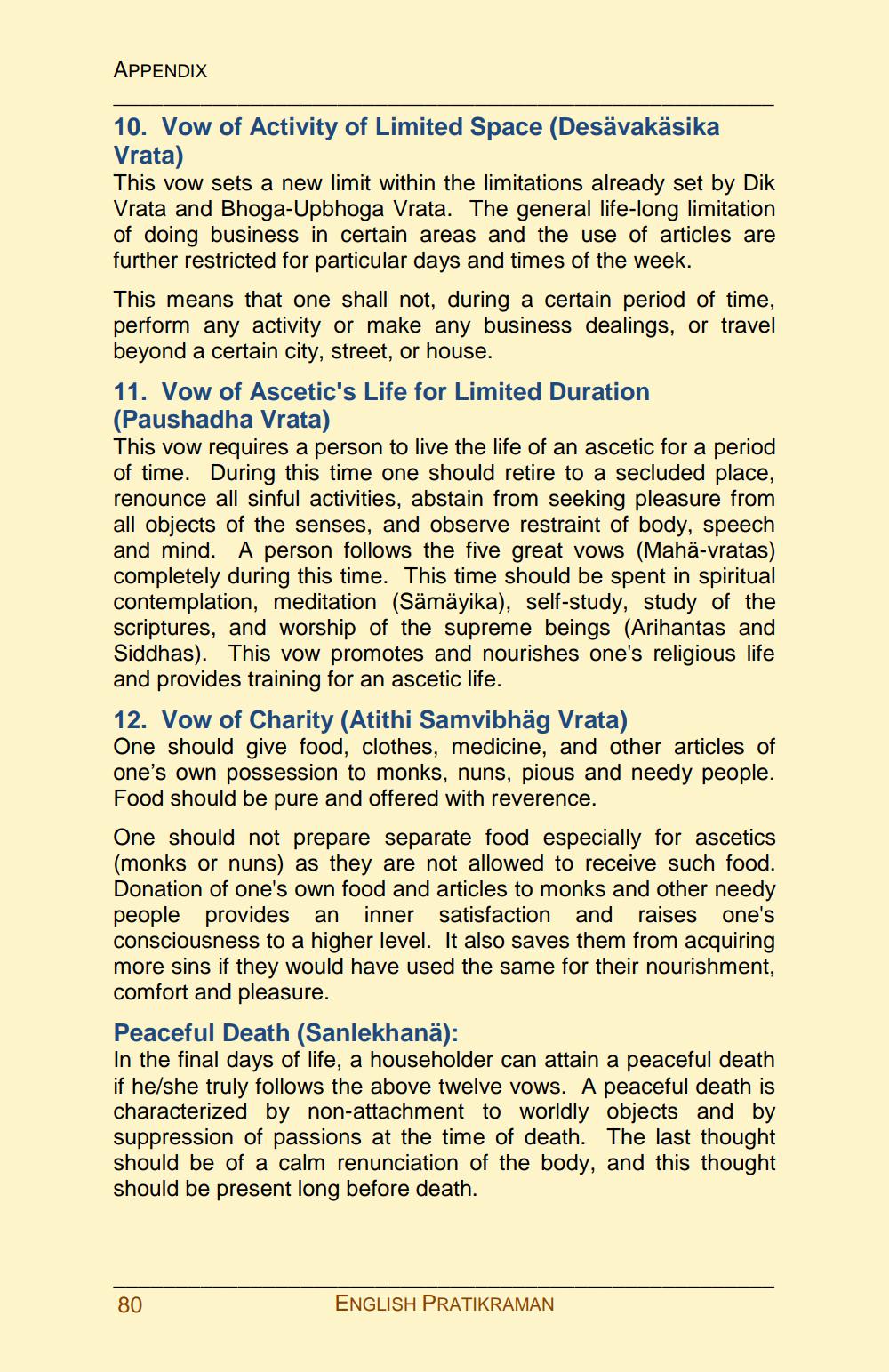________________
APPENDIX
10. Vow of Activity of Limited Space (Desävakäsika Vrata) This vow sets a new limit within the limitations already set by Dik Vrata and Bhoga-Upbhoga Vrata. The general life-long limitation of doing business in certain areas and the use of articles are further restricted for particular days and times of the week. This means that one shall not, during a certain period of time, perform any activity or make any business dealings, or travel beyond a certain city, street, or house.
11. Vow of Ascetic's Life for Limited Duration (Paushadha Vrata) This vow requires a person to live the life of an ascetic for a period of time. During this time one should retire to a secluded place, renounce all sinful activities, abstain from seeking pleasure from all objects of the senses, and observe restraint of body, speech and mind. A person follows the five great vows (Mahä-vratas) completely during this time. This time should be spent in spiritual contemplation, meditation (Sämäyika), self-study, study of the scriptures, and worship of the supreme beings (Arihantas and Siddhas). This vow promotes and nourishes one's religious life and provides training for an ascetic life. 12. Vow of Charity (Atithi Samvibhäg Vrata) One should give food, clothes, medicine, and other articles of one's own possession to monks, nuns, pious and needy people. Food should be pure and offered with reverence.
One should not prepare separate food especially for ascetics (monks or nuns) as they are not allowed to receive such food. Donation of one's own food and articles to monks and other needy people provides an inner satisfaction and raises one's consciousness to a higher level. It also saves them from acquiring more sins if they would have used the same for their nourishment, comfort and pleasure. Peaceful Death (Sanlekhana): In the final days of life, a householder can attain a peaceful death if he/she truly follows the above twelve vows. A peaceful death is characterized by non-attachment to worldly objects and by suppression of passions at the time of death. The last thought should be of a calm renunciation of the body, and this thought should be present long before death.
80
ENGLISH PRATIKRAMAN




